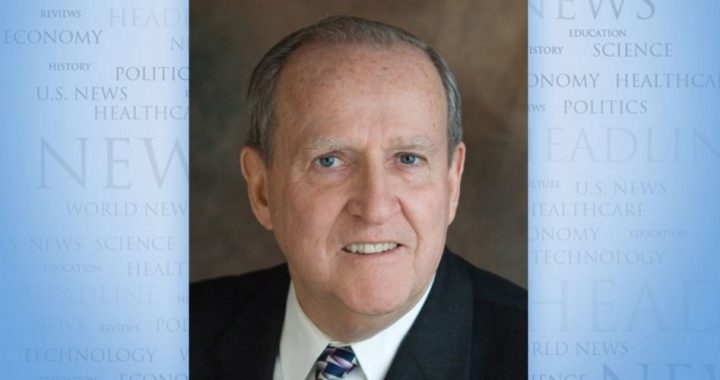
Yuri Bezmenov defected from Soviet Russia 40-plus years ago. A veteran of years of service in Moscow’s dreaded KGB, he eventually came to the West and then traveled through our country delivering his unique wake-up call. Members of The John Birch Society gathered most of his audiences. The warning he gave is needed even more today.
Bezmenov (who adopted the name Tomas Shuman) would freely express his disappointment that so few Americans had any awareness of the steady undermining of their country’s basic foundations. He told all he could reach that America suffered not from espionage, which the KGB considered a minor undertaking, but from “ideological subversion.” What was occurring, he explained, could also be termed “psychological warfare.” Its result brings about a population unable “to come to sensible conclusions in the interest of defending themselves, their families, their community, and their country.”
“The process leading to destruction of the United States as a free and independent country,” said Bezmenov, “starts with demoralization, the turning away from foundational truths. In place of that foundation, Marxism-Leninism would be subtly but effectively introduced.” The undermining of America, he insisted, was being “done by Americans to Americans thanks to a lack of moral standards.” The fruit of this type of demoralization, he pointed out, is that a person becomes “unable to assess true information, and facts mean nothing to him even if he is showered with authentic information.”
Were Yuri Bezmenov alive today, he would point to the millions who supported Bernie Sanders during that self-identified socialist’s campaign to become U.S. president. He would point to the supporters of Hillary Clinton, who, though she is not an admitted socialist, differs with Sanders only marginally. In some ways, Mrs. Clinton is even more to be feared because of her attitude expressed openly to an assemblage of gay, transgender, and pro-abortion activists at the United Nations. She told her adoring crowd that America’s “deep-seated cultural codes, religious beliefs, and structural biases have to be changed.”
There is much more that Bezmenov sought to explain to Americans. But his emphasis on the undermining of morality as the starting point in the campaign to destroy a nation deserves attention. Cleared of all its obfuscating wrappings, socialism is theft. Sad to say, many Americans have become captivated by its thievery in that they want a supposed free ride for things their parents worked for. And they want confiscation of wealth because they have been convinced that wealthy people are thieves. They know little or nothing about our nation’s foundations contained in the Declaration of Independence and Constitution. Nor do they have any awareness of sound economic principles. Ask them about these fundamentals and expect to be told to cease referring to the “horse and buggy” days of the past.
About morality, John Adams once stated, “Our Constitution was made only for a moral and religious people. It is wholly inadequate to the government of any other.” Government, in his view, should be a negative force, not a positive force for taking care of people who should take care of themselves. The people should guide their own conduct through such oldies as the Ten Commandments and the Golden Rule.
And John Birch Society Founder Robert Welch frequently insisted: “Morality sees farther than intellect.” What good is there in the efforts of a very intelligent person, he explained, if that person has no moral base and uses his brilliance exclusively for self-aggrandizement?
Yuri Bezmenov hoped there could be some kind of strong national effort to educate people about the real spirit of patriotism. Along with that, he urged a parallel campaign to explain “the real danger of a socialist, communist, welfare state, Big Brother government.” And he saw in The John Birch Society the kind of institution that could reverse the already widespread demoralization throughout America — if it became large enough. His message, given decades ago, is still very much needed today.
John F. McManus is president emeritus of The John Birch Society. This column appeared originally at the insideJBS blog and is reprinted here with permission.



